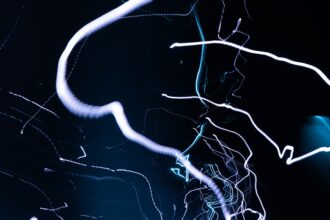Distractions are an inevitable part of modern life, and their impact can be profound. You may find that even a momentary lapse in focus can lead to a cascade of inefficiencies, affecting not just your productivity but also your overall well-being. When you allow distractions to take hold, you may notice that tasks take longer to complete, and the quality of your work may suffer.
This can lead to increased stress and frustration, as you struggle to meet deadlines or achieve your goals. Understanding the nature of distractions is the first step toward regaining control over your attention and enhancing your productivity. Moreover, distractions can have a ripple effect on your mental health.
You might feel overwhelmed by the constant barrage of notifications from your phone or the noise of a bustling environment. This overstimulation can lead to feelings of anxiety and restlessness, making it even harder to concentrate. By recognizing how distractions affect you personally, you can begin to take proactive steps to mitigate their influence.
The journey toward improved focus starts with acknowledging the challenges posed by distractions and committing to finding solutions that work for you.
Key Takeaways
- Distractions can have a significant impact on our ability to focus and be productive.
- Common distractions in daily life include social media, multitasking, and environmental noise.
- Staying focused is important for achieving goals and completing tasks efficiently.
- Strategies for minimizing distractions include setting boundaries, prioritizing tasks, and creating a designated workspace.
- Creating a distraction-free environment can help improve concentration and productivity.
Recognizing Common Distractions in Daily Life
In your daily routine, distractions can come in many forms, often disguised as harmless interruptions. You might find yourself scrolling through social media during work hours or getting sidetracked by a seemingly urgent email. These small diversions can quickly add up, consuming valuable time and energy that could be better spent on more meaningful tasks.
By identifying these common distractions, you can develop a clearer understanding of what pulls your attention away from your priorities. Additionally, environmental factors play a significant role in your ability to concentrate. You may be working in a noisy café or sharing a workspace with others who frequently interrupt you.
Recognizing these external distractions is crucial for creating strategies to minimize their impact. By taking stock of both digital and physical distractions in your life, you can begin to formulate a plan that allows you to reclaim your focus and enhance your productivity.
The Importance of Staying Focused

Staying focused is essential for achieving your goals and maintaining a sense of accomplishment in your daily life. When you are able to concentrate fully on a task, you may find that you work more efficiently and produce higher-quality results. This sense of flow not only boosts your productivity but also enhances your creativity, allowing you to approach problems with fresh perspectives.
By prioritizing focus, you set yourself up for success in both personal and professional endeavors. Moreover, maintaining focus can significantly improve your mental clarity and emotional well-being. When you are engaged in a task without distractions, you may experience a sense of satisfaction and fulfillment that comes from completing something meaningful.
This positive feedback loop reinforces the importance of staying focused, as it encourages you to continue pursuing your goals with determination and enthusiasm. Ultimately, cultivating focus is not just about getting things done; it’s about enriching your life and fostering a deeper connection with your work.
Strategies for Minimizing Distractions
| Strategy | Description |
|---|---|
| Set specific work hours | Establish a dedicated time for work without distractions. |
| Use noise-cancelling headphones | Block out external noise to stay focused on tasks. |
| Organize workspace | Keep the work area tidy and free from unnecessary items. |
| Limit social media usage | Set specific times for checking social media to avoid constant distractions. |
| Take regular breaks | Allow short breaks to refresh the mind and prevent burnout. |
To effectively minimize distractions, it’s essential to develop a set of strategies tailored to your unique circumstances. One effective approach is time blocking, where you allocate specific periods for focused work interspersed with short breaks. This method allows you to dedicate uninterrupted time to important tasks while also giving yourself permission to step away and recharge.
By structuring your day in this way, you may find it easier to resist the temptation of distractions. Another strategy involves setting boundaries around technology use. You might consider turning off non-essential notifications on your devices or using apps designed to limit screen time during work hours.
By creating these boundaries, you empower yourself to stay focused on the task at hand without the constant pull of digital distractions. Experimenting with different strategies will help you discover what works best for you, ultimately leading to a more productive and fulfilling daily routine.
Creating a Distraction-Free Environment
Your physical environment plays a crucial role in your ability to concentrate effectively. To create a distraction-free space, start by decluttering your workspace. A clean and organized area can help clear your mind and reduce visual distractions that may hinder your focus.
Consider personalizing your workspace with items that inspire you or promote calmness, such as plants or artwork. By curating an environment that resonates with you, you set the stage for enhanced concentration. Additionally, consider the auditory aspects of your environment.
If noise is a significant distraction for you, investing in noise-canceling headphones or playing soft background music can help create an atmosphere conducive to focus. You might also explore the benefits of natural light and fresh air by positioning your workspace near a window or taking breaks outside. By thoughtfully designing your environment, you can cultivate a space that supports your concentration and productivity.
Techniques for Improving Concentration

Improving concentration often requires the implementation of specific techniques that resonate with your personal preferences and lifestyle. One effective method is the Pomodoro Technique, which involves working in focused bursts followed by short breaks. This approach not only helps maintain high levels of concentration but also prevents burnout by allowing regular intervals for rest and rejuvenation.
You may find that this structured approach enhances both your productivity and enjoyment of tasks. Another technique worth exploring is mindfulness meditation. By practicing mindfulness, you train your mind to stay present and aware, which can significantly improve your ability to concentrate over time.
Even just a few minutes of meditation each day can help clear mental clutter and enhance your focus on tasks at hand. Incorporating mindfulness into your daily routine can lead to lasting improvements in concentration and overall mental clarity.
Setting Realistic Goals and Priorities
Setting realistic goals is fundamental to maintaining focus and motivation in your daily life. When you establish clear objectives that are achievable within a specific timeframe, you create a roadmap for success that guides your efforts. You might consider breaking larger projects into smaller, manageable tasks that allow for incremental progress.
This approach not only makes daunting tasks feel more attainable but also provides opportunities for celebrating small victories along the way. Prioritization is equally important when it comes to goal-setting. You may find it helpful to identify which tasks are most urgent or impactful and tackle those first.
By focusing on high-priority items, you ensure that your energy is directed toward what truly matters, reducing the likelihood of getting sidetracked by less important distractions. Establishing realistic goals and priorities empowers you to stay focused on what counts while fostering a sense of accomplishment as you make steady progress.
Utilizing Technology to Stay Focused
While technology can often be a source of distraction, it can also serve as a powerful ally in enhancing focus when used wisely. Numerous apps are designed specifically to help individuals manage their time and minimize distractions effectively. For instance, task management tools can help you organize your responsibilities while providing reminders for deadlines and priorities.
By leveraging these digital resources, you can streamline your workflow and maintain focus on essential tasks. Additionally, consider using website blockers during work hours to prevent access to distracting sites that may derail your concentration. These tools allow you to create designated periods for focused work without the temptation of wandering off into the digital abyss.
By harnessing technology strategically, you can transform potential distractions into valuable resources that support your efforts toward improved focus and productivity.
The Role of Mindfulness in Overcoming Distractions
Mindfulness plays a pivotal role in overcoming distractions by fostering greater awareness of your thoughts and surroundings. When you practice mindfulness regularly, you cultivate the ability to recognize when distractions arise without judgment or frustration. This heightened awareness allows you to gently redirect your focus back to the task at hand rather than becoming overwhelmed by external stimuli or internal chatter.
Incorporating mindfulness techniques into your daily routine can significantly enhance your ability to concentrate over time. Simple practices such as deep breathing exercises or mindful walking can help ground you in the present moment, making it easier to resist distractions as they arise. By embracing mindfulness as a tool for focus, you empower yourself to navigate challenges with greater clarity and intention.
Seeking Support from Others
You don’t have to navigate the journey toward improved focus alone; seeking support from others can be incredibly beneficial. Whether it’s friends, family members, or colleagues, sharing your goals with those around you creates accountability and encouragement. You might consider forming study groups or accountability partnerships where individuals motivate each other to stay focused on their respective tasks.
Additionally, discussing challenges related to distractions with others can provide valuable insights and strategies that you may not have considered before. Engaging in conversations about focus-related struggles fosters a sense of community and shared experience, reminding you that many people face similar challenges in today’s fast-paced world.
Celebrating Successes and Learning from Setbacks
As you work toward minimizing distractions and improving focus, it’s essential to celebrate your successes along the way. Acknowledging even small achievements reinforces positive behavior and motivates you to continue striving for improvement. Whether it’s completing a challenging project or successfully implementing new strategies for focus, take time to recognize these milestones as significant steps forward.
Instead of viewing them as failures, consider them opportunities for learning and reflection. Analyzing what led to distractions or lapses in focus allows you to adjust your strategies moving forward effectively.
Embracing both successes and setbacks as integral components of the process fosters resilience and determination as you continue working toward enhanced concentration and productivity in all areas of your life.
To combat this, it’s essential to develop strategies that help us maintain our concentration and productivity. One insightful article that delves into this topic is “Stop Letting Distractions Win,” which offers practical tips and techniques to help you regain control over your attention. For more strategies on enhancing productivity and managing distractions, you can explore additional resources on Productive Patty’s website. Check out this related article on their sample page for more valuable insights.
WATCH NOW! Nietzsche: Destroy Your Laziness Before It Destroys Your Career
FAQs
What are common distractions that people face?
Common distractions that people face include social media, email, phone calls, text messages, co-workers, noise, and personal worries or concerns.
How do distractions affect productivity?
Distractions can significantly reduce productivity by interrupting workflow, causing delays, and increasing the likelihood of errors. They can also lead to a loss of focus and motivation.
What are some strategies for minimizing distractions?
Strategies for minimizing distractions include creating a designated workspace, setting specific times for checking email and social media, using noise-cancelling headphones, prioritizing tasks, and practicing mindfulness or meditation.
How can individuals stay focused in the face of distractions?
Individuals can stay focused in the face of distractions by setting clear goals, creating a daily schedule, practicing time management, and learning to say no to non-essential tasks or requests.
What are the long-term effects of constantly giving in to distractions?
Constantly giving in to distractions can lead to chronic stress, decreased job satisfaction, lower performance evaluations, and a negative impact on overall well-being. It can also hinder personal and professional growth.




